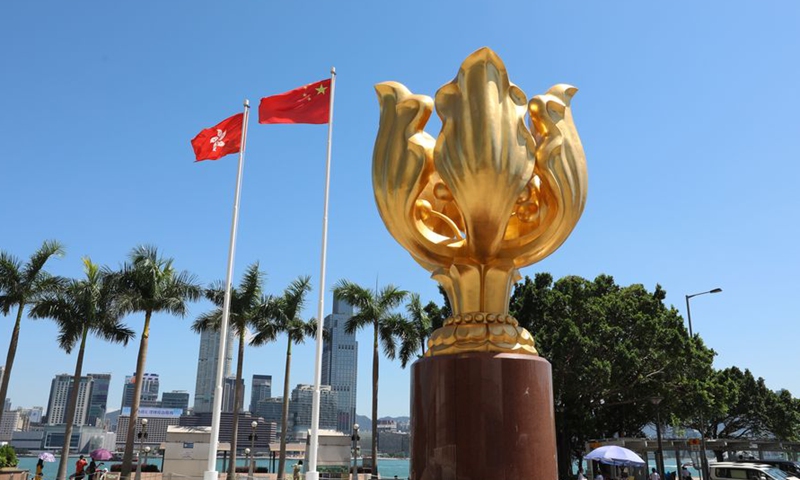National security legislation offers overdue remedy for HK: Global Times editorial

Photo:Xinhua
China's national legislature will review a draft decision from the third session of the 13th National People's Congress (NPC) on establishing and improving the judicial system and enforcement of laws in the Hong Kong Special Administrative Region (HKSAR) to safeguard national security, said Zhang Yesui, a session spokesperson, during a press conference on Thursday. Unlike Article 23 of the Basic Law, the draft, empowered by the Chinese constitution and the Basic Law, would implement legislation for Hong Kong's national security issues.
The draft represents a significant legislative step regarding HKSAR security issues. It aims to resolve HK's legal deficiencies and prevent internal and external forces from using the region as a tool or creating situations that threaten national security.
Article 23 of the Basic Law allows the HKSAR government to improve its legal system when safeguarding national security. However, 20 years after Hong Kong's return to the Chinese mainland, enforcing local legislation has been problematic. The draft addresses HK's legal obstacles while aiming to strengthen legislative vulnerabilities. The measure also echoes the basic principles of the rule of law.
For example, take a look at what the internal and external opposition forces have done to HK by manipulating security loopholes. For the year of 2019, HK did not enjoy a single peaceful day. It was like a city in an undeveloped country engulfed in turmoil. Stores and subway stations were damaged, roads were blocked, and innocent people were attacked and burned. College students were prevented from attending classes. Due to the chaos, HK fell sharply in the global rankings. Now is the time to put an end to it all.
The national security legislation for HKSAR is fundamentally necessary for the "one country, two systems" principle. Hong Kong opposition forces and Western media have said the draft decision would destroy it. On the contrary, the draft law is a move aimed at preventing external forces from meddling in HK affairs. It would also deter the power HK extremists. The decision would reestablish a stable environment where the "one country, two systems" principle could work smoothly.
Extreme opposition forces try to steer HK off course and direct it to external influences like the US. Opposition entities in HK and the US try to create a value system against China's central government and the "one country, two systems" policy. They try to redefine the policy, and what HK democracy and freedom mean to them. In recent months, they have distorted Hong Kong public opinion. The concept of right and wrong has become so warped that last year's law-defying violence has since been labeled as "justice."
Hong Kong security is an integral part of China's national security. The security loopholes must be plugged to prevent external forces from meddling in its affairs and using the city to attack China. Furthermore, Hong Kong affairs would cease to be a diplomatic issue between China and the US. For Hong Kong, the next steps are peace and revitalization, which will be necessary for it to reclaim its standing as an international financial hub.
By adding greater national security protection, Hong Kong's status as a special administrative region will be consolidated. Moreover, it would make it easier to maintain its unique political system and prevent it from being hijacked by international situations. The extra layer of protection would also make it increasingly difficult for some "ambitious" HK politicians to poison the city's atmosphere. HK capitalism would begin to reveal the common traits it shares with developed societies rather than underdeveloped ones. Therein lies is the main interest of all Hong Kong people.
Chinese mainlanders support Hong Kong in maintaining its political system and unique social style. It is unnecessary for Hong Kong to exercise what the Chinese mainland possesses. It is foreseeable that HKSAR national security legislation would serve the city's best interests and provide a better future for the "Pearl of the Orient."